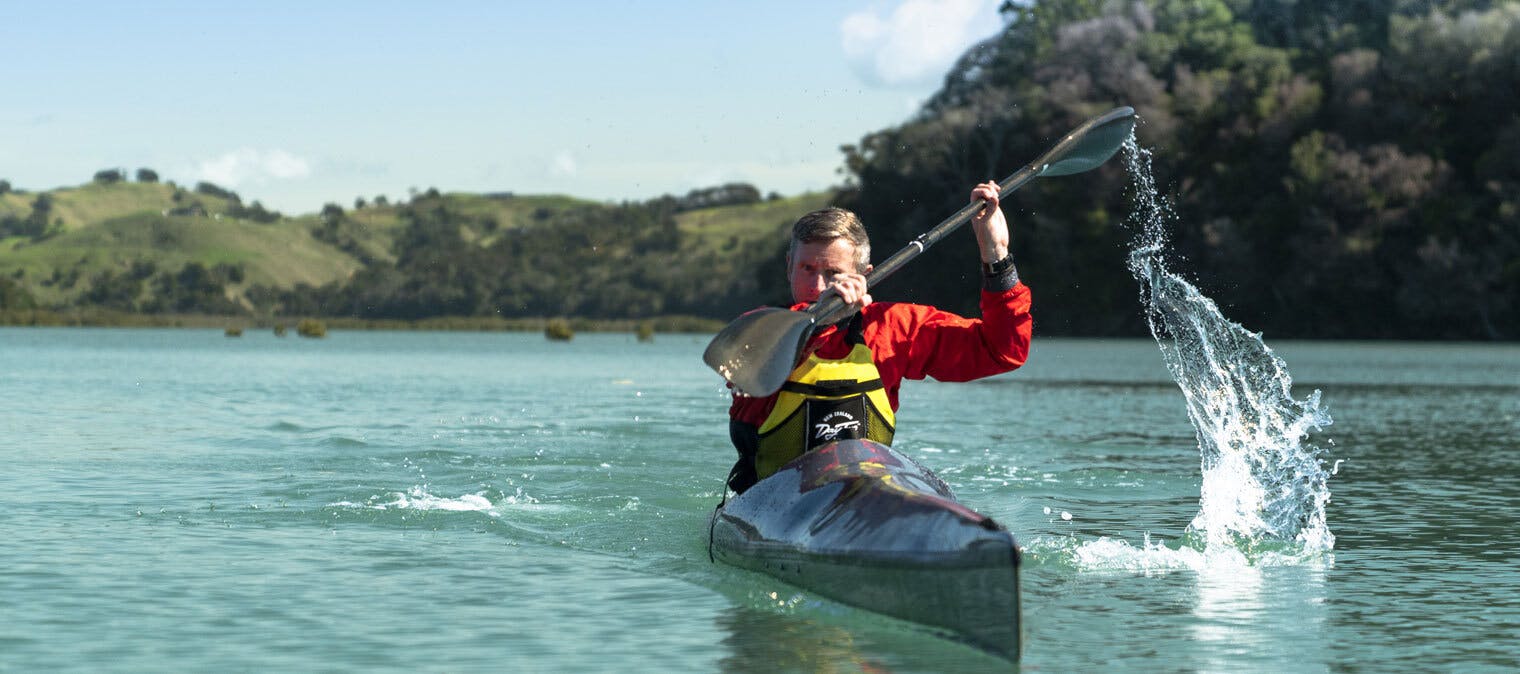An elite sports coach & nutritionist’s top recovery tips
May 12, 2020
|Paul Cadman knows a lot about endurance training. As an accomplished sportsman, nutritionist and coach to high performance sports people, he is passionate about enabling athletes to reach their potential.
WRITTEN BY
MitoQ
PUBLISHED
May 12, 2020
UPDATED
Sep 13, 2023
Often that means he pushes them to the point of breaking in order to strengthen muscle, increase power and build endurance. While this is important, an often forgotten but equally important part of the training schedule is recovery time.
We asked Paul to give us his insight into why recovery is so important plus his top tips to aid recovery. Read on to discover his recommendations...
Rest and recovery are king
“Rest and recovery are where the magic happens, it’s when all the restorative processes occur, and you become stronger,” advises Paul. “Many athletes prefer to live by the adage that more is better and push forward day after day. While such a work ethic is admirable it’s likely to lead to injuries and excessive fatigue. With appropriate recovery you will adapt and become a stronger athlete.”
In a nutshell, training effectively causes damage, while rest and recovery repairs that damage, allowing you to get the most out of each training session, ultimately improving your performance and helping you to achieve your goals.
Here are Paul’s top six tips to help with recovery...
Get quality sleep
"Getting adequate quality sleep is one of the easiest ways to improve your performance. It’s crucial to maximise restorative sleep time. Develop a regular routine by going to bed and waking up at the same time daily and aiming for between 8 - 9 hours of sleep a night. Reduce screen time in the hour before bed and use ‘nightshift’ or apps that remove blue light from devices in non-daylight hours, f.lux is a good one."
Recovery nutrition
"Nutrition is one of the pillars of an effective endurance training program. Ensure you are aiding recovery by giving your body what it needs when it’s most open and able to absorb it especially after the longer and more intense training sessions or races.
"Recovery nutrition is especially important after more intense or longer training sessions where the likelihood of depletion is higher. Timing is important, it’s generally accepted you should aim to have your first intake of recovery nutrition with 30mins of completing your training. This will also extend the window for your next meal to be effective in playing a role in proper recovery.
"The goal of recovery nutrition is to replenish depleted glycogen stores and aid the repair process. To achieve this you will need to have carbohydrate and protein in your first recovery meal. Ideally 1g carbohydrate per kg body weight and .3g protein per kg body weight.
"Fluid and electrolytes. During exercise you would have lost fluid and electrolytes so it’s important to replace these also. Weigh yourself after exercise, for every kg of lost body weight you should aim for 1.5 litres of fluid intake to rehydrate.
"Finish your recovery nutrition with a well-rounded meal containing whole food sources of protein, fat and carbohydrate about 2hrs after you finish training."
Rehydrate
"Believe it or not most endurance athletes go into training sessions in a partially dehydrated state! It’s vital to rehydrate to aid recovery. If your pee is dark in colour, or you can’t go for a wee, chances are you need to get fluid in. As a rule of thumb, when your urine is lighter in colour you are adequately hydrated."
Massage and stretching
"Ideally, you’d be getting regular massage. If that just is not possible self-massage with a foam roller or tennis ball and supplement with a massage every 10 days or so. Also incorporate regular stretching."
Stick to the plan
"Your coach will prescribe your workouts on particular days at varying intensities for a reason. Same goes for complete rest days or active recovery sessions. It’s all part of the plan to maintain your ability to continue to train towards achieving your goals. Stick to the plan to aid recovery, resist the urge to include sessions that aren’t planned or try and go just that little bit harder because you’re feeling good. When there is a rest day in the plan enjoy it, it’s there for a reason!"
MitoQ
"In experimenting with MitoQ myself I have experienced heightened recovery during high load training periods. Using Heart Rate Variability and various bio markers it is clear to me that MitoQ aids the recovery process, making training far more efficient and effective.
"While we don’t yet fully understand the ‘why’ (watch out for upcoming study results for some answers) we could hypothesise that it is partly due to helping to reduce the oxidative stress that results from strenuous exercise, which means the body is using less energy to overcome this bi-product [and can] recover more quickly."
Related articles
Decoding your fatigue: when is tiredness a signal, and how to listen to your body
Read more
Jun 15, 2025
|